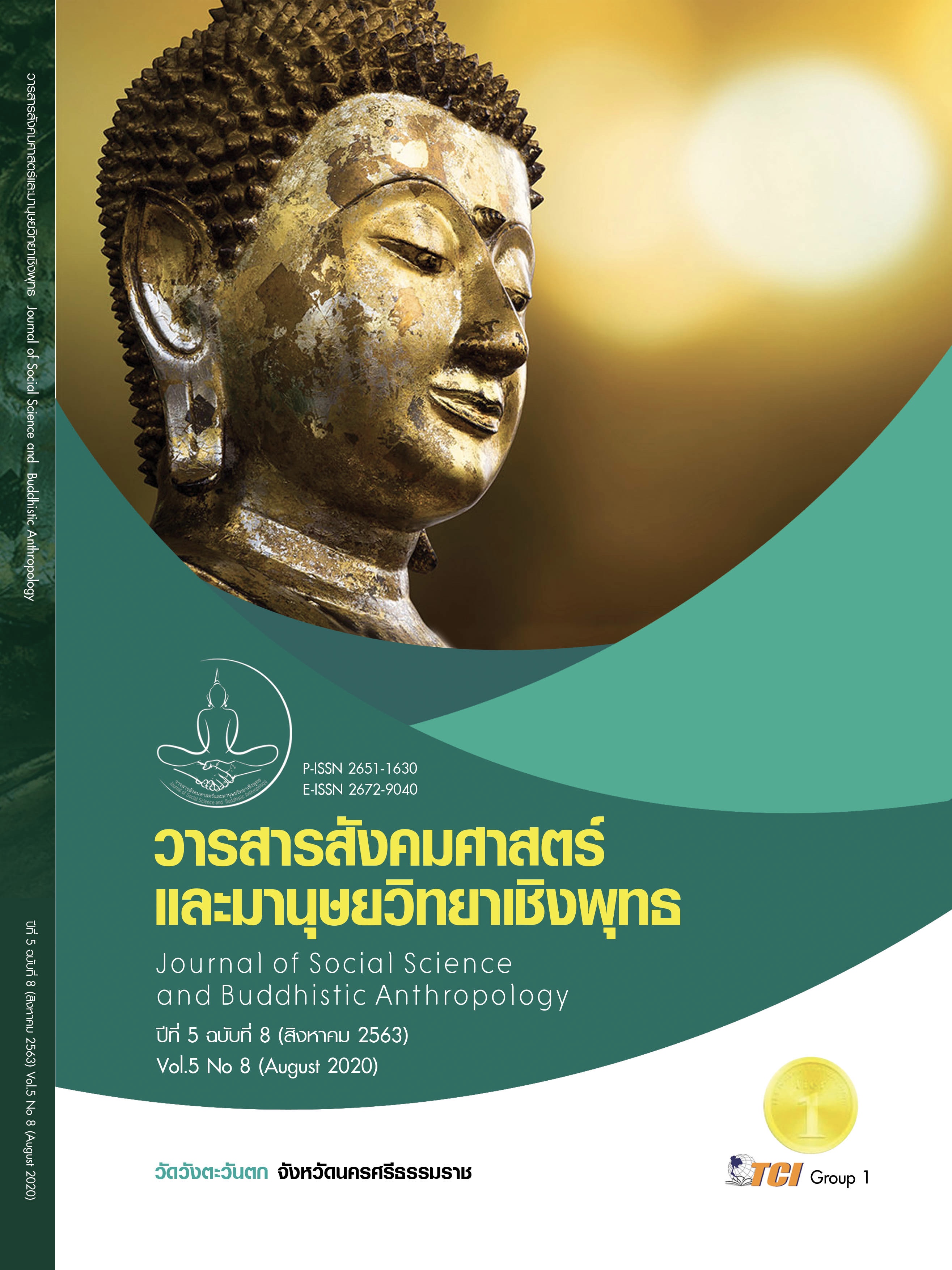ECOLOGICAL DISCOURSES IN CONTEMPORARY LAO SHORT STORIES "VINYAN SA - EUHN"
Keywords:
Discourse, Ecological Discourse, Temporary Lao Short StoriesAbstract
This research paper is an analysis of ecological Discourses in contemporary Lao literature, a collection of Lao language version short stories "Vinyan Sa-euhn". This is a qualitative research by researching all the literature documentaries through study the chapter of novelette, Laos social contexts. Moreover, studying the documents which related with the idea of Ecological Discourse through consideration process the chapter as Discourse stage. Then, present this study in the descriptive analysis format. The research findings found 4 ecological Discourses as the following. 1) Ecological Discourse in term of the forest legal. This reflected the law protecting wildlife and trees to control the natural degradation. The ecological Discourse caused people to fear breaking the law and dare not to commit mistakes. 2) Ecological Discourse in term of anti-capitalist Discourse is a Discourse that has an idea that nature is a trading product. It also gave readers direction to figure out the effects of destroying natural resources that lead to ecological consciousness 3) Ecological Discourse in term of nature as a superstitious belief, and sacred things. It is a Discourse that believes that wildlife and trees is respectable things something that can save humans. Such concepts result in humans being afraid and dare not to invade the nature. 4) The ecological Discourse in term of human as the natural destroyer. It was a concept that animals were made to be human-like creature and feels like humans, so humans shouldn't invade the nature. From the above Discourse, the researcher found that the writers used the Discourse as a medium to convey the concept of ecological awareness to the readers and it was also the Discourse that consistent with Laos government's natural resource preservation policy.
References
กระทรวงแผนการและการลงทุนนครหลวงเวียงจันทน์. (2008). แผนพัฒนาเศรษฐกิจ-สังคม สกปี 2008-2009. (พิมพ์ครั้งที่ 5). เวียงจันทน์: กระทรวงแผนการและการลงทุน.
กอบกาญจน์ ภิญโญมารค. (2554). ธรรมชาติในกวีนิพนธ์ไทยร่วมสมัย. กรุงเทพมหานคร: อินทนิล.
จอห์น คลาร์ค เอ็ลเดอร์. (2536). คำนึงถึงโลก มนุษย์กับธรรมชาติ: ภาพสะท้อนจากวรรณกรรมอเมริกัน ใน ฉัตรสุมาลย์ กบิลสิงห์ (บรรณาธิการ) มนุษย์กับธรรมชาติ: เสียงใคร่ครวญจากภูมิปัญญาตะวันออก - ตะวันตก (หน้า 275-292). กรุงเทพมหานคร: จุฬาลงกรณ์มหาวิทยาลัย.
เจตน์ เจริญโท. (2537). ความสัมพันธ์ของการเพิ่มประชาชนโลกกับสถานการณ์สิ่งแวดล้อม ใน พิทยา ว่องสกุล (บรรณาธิการ) สถานการณ์สิ่งแวดล้อมไทย (หน้า 22 ). กรุงเทพมหานคร : มูลนิธิโลกสีเขียว.
ชัชวาล โคตรสงคราม. (2550). สุนทรียภาพในวรรณคดีลาวเรื่องสังข์ศิลป์ชัยและมหาเวสสันดรชาดก. ใน วิทยานิพนธ์การศึกษามหาบัณฑิต สาขาวิชาภาษาไทย. มหาวิทยาลัยมหาสารคาม.
ไชยรัตน์ เจริญสินโอฬาร. (2542). วาทกรรมการพัฒนา. (พิมพ์ครั้งที่ 5). กรุงเทพมหานคร: วิภาษา.
ธัญญา สังขพันธานนท์. (2553). วรรณกรรมวิจารณ์เชิงนิเวศ: วาทกรรมธรรมชาติและสิ่งแวดล้อมในวรรณกรรมไทย. ใน ดุษฎีนิพนธ์ศิลปศาสตรดุษฎีบัณฑิต สาชาวิชาภาษาไทย. มหาวิทยาลัยนเรศวร.
ปฐม หงษ์สุวรรณ. (2556). นานมาแล้ว: มีตำนาน นิทาน ตำนาน ชีวิต. กรุงเทพมหานคร: สำนักพิมพ์แห่งจุฬาลงกรณ์มหาวิทยาลัย.
พูมี วงวิจิด. (2538). คุณสมบัติใหม่และศีลธรรมปฏิวัติ. เวียงจันทน์: โรงพิมพ์แห่งรัฐ.
สุเนด โพทิสาน และคณะ. (2000). ประวัติศาสตร์ลาว: ดึกดำบรรพ์ - ปัจจุบัน. เวียงจันทน์: กระทรวงแถลงข่าวและวัฒนธรรม.
สุรชัย ศิริไกร. (2542). การพัฒนาเศรษฐกิจและการเมืองลาว. กรุงเทพมหานคร: คบไฟ.
Heise, U. K. (1997). Science and ecocriticism. The American Book Review, 18(5), 4-7.









